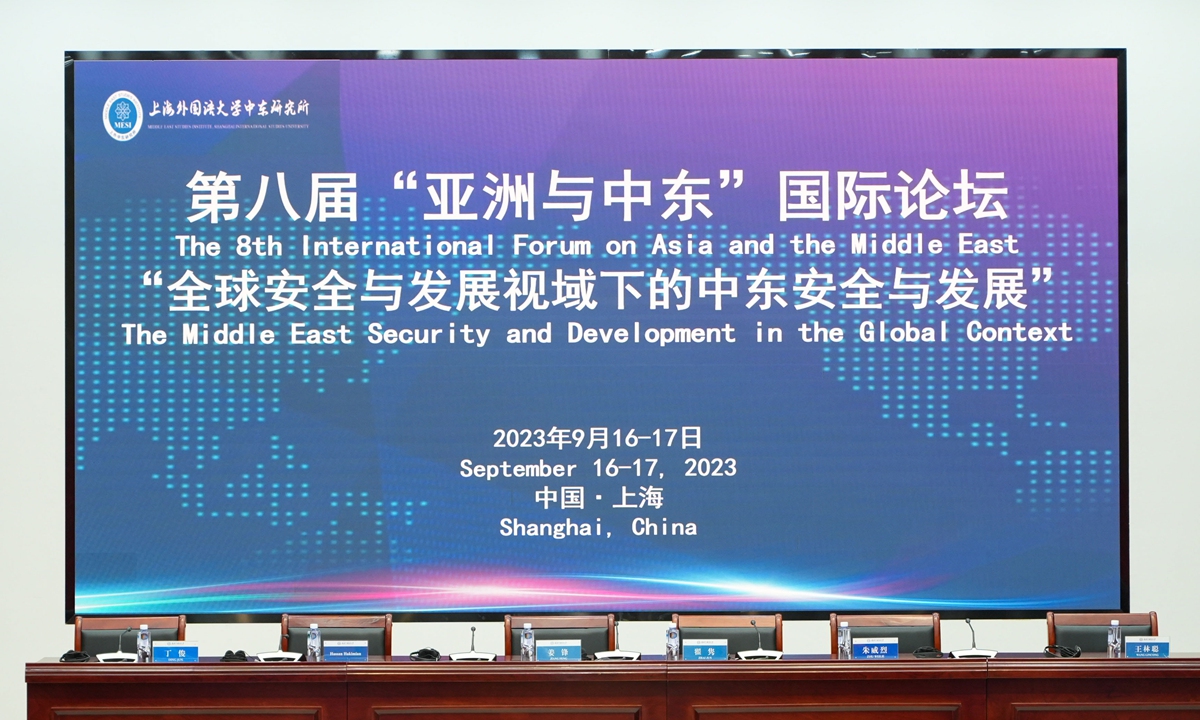
Photo: Courtesy of the Middle East Studies Institute of the Shanghai International Studies University
China and Middle East countries can build a bridge of communication and actively face global challenges together, said experts attending a forum in Shanghai over the weekend.
From Saturday to Sunday, the 8th International Forum on Asia and Middle East Conference, themed "The Middle East Security and Development in the Global Context," was jointly held by the Middle East Studies Institute of the Shanghai International Studies University (SISU), the Chinese Association of Middle East Studies, and the Doha-based Hamad Bin Khalifa University. The forum consisted of five workshops in which more than 120 scholars from about 20 countries and regions shared their views.
Professor Jiang Feng, the chair of the SISU, in his opening remarks, said that the conference is an important contribution to promote dialogue between different civilizations.
In September 2021, Chinese President Xi Jinping put forward the Global Development Initiative (GDI) at the 76th Session of the United Nations General Assembly. And in April 2022, he put forward the Global Security Initiative (GSI) at the Boao Forum for Asia Annual Conference. In March, Iran and Saudi Arabia agreed to re-establish diplomatic relations after years of tensions, with China playing a key role as the mediator.
Zhai Jun, special envoy of the Chinese government on the Middle East issue, said at the forum that the world is still facing a deficit of peace and development, and China's GDI and GSI have contributed to promoting peace in the Middle East. Former special envoy of the Chinese government on the Middle East issue, Wu Sike, analyzed that China's advocacy for a new vision of security is beneficial for peace and development in the Middle East.
This year marks the 10th anniversary of the Belt and Road Initiative (BRI) proposal. Youness Abouyoub, chief of the Governance and State-Building Section at the United Nations Economic and Social Commission for Western Asia, highlighted the Middle East's keen interest in the BRI and described the cooperation between China and the region as dynamic and predictable.
Professor Mohamad Homayoon from Imam Sadie University in Iran emphasized the uniqueness of Iranian civilization and expressed hope for not succumbing to hegemony. He also stressed the importance of developing multilateral diplomacy and thinking critically about the development of the country. He believes that with China's help, the future of West Asia is promising.




